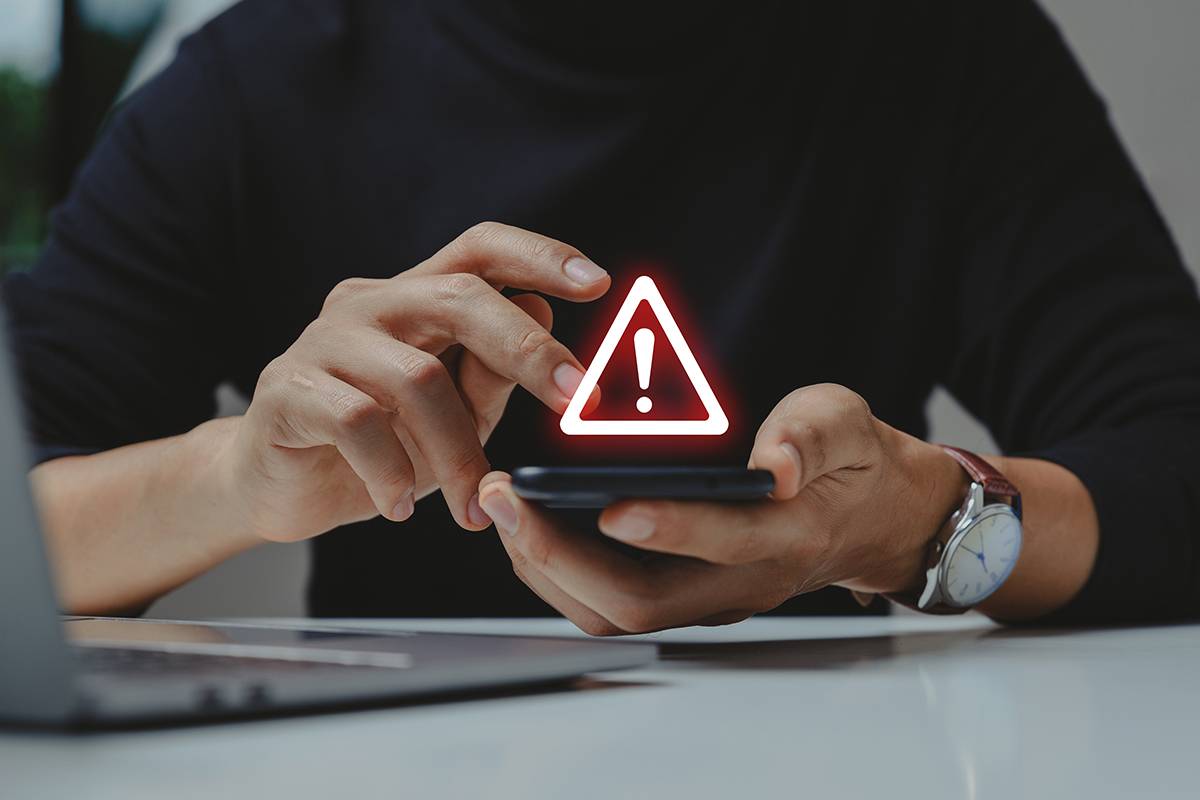You may have encountered smishing if you’ve ever received a suspicious text message claiming you won a prize or warning about an urgent account issue. But what exactly is smishing, and why is it such a growing concern? Let’s dive into this scam and learn how to protect yourself from falling victim.
Smishing 101: Breaking Down the Basics
Smishing is a form of phishing that targets individuals through SMS (short message service) or text messages – the term is a combination of “SMS” and “phishing.” Cybercriminals use smishing to trick recipients into revealing personal information, such as passwords, credit card numbers, or social security details, often by pretending to be a trusted entity.
The fraudulent texts often look legitimate, using familiar logos, official-sounding language, and even personal details to convince you they’re real. These messages typically include a call to action, such as clicking a link, downloading an attachment, or calling a phone number. Once you take the bait, the scammers can access your sensitive information or install malware on your device.
Common Smishing Scams to Avoid
Smishing works because it preys on trust, urgency, and convenience. Younger generations, accustomed to communicating via text and clicking links on mobile devices, are particularly at risk. Scammers capitalize on the fast-paced nature of texting and the tendency to respond quickly without overanalyzing.
Here are a few of the most common scams to avoid:
- Bank Alerts: Messages warning you about suspicious account activity or asking you to verify transactions. IMPORTANT: Quail Creek Bank will never request your personal financial information in this way. If you receive a text message regarding your Quail Creek Accounts, please contact us immediately at (405) 755-1000.
- Package Delivery Notifications: Fake updates claiming there’s an issue with your delivery.
- Contests and Prizes: A text that promises a reward or special prize if you click a link and provide your information.
How to Spot a Smishing Attempt
The good news is you don’t need to be a tech expert to spot smishing. Here are some signs to watch for:
- Unsolicited Messages: If you didn’t initiate contact or sign up for updates, be wary of any unexpected text.
- Spelling and Grammatical Errors: Legitimate companies usually proofread their communications.
- Urgent Language: Phrases like “act now” or “immediate action required” are designed to make you panic – don’t fall for it.
- Request for Personal Information: A reputable organization like Quail Creek Bank will never ask for sensitive details via text.
Steps to Protect Yourself
Protecting yourself from smishing doesn’t require a complete tech overhaul. You just need to follow some simple steps to stay safe:
- Avoid clicking on links from unknown senders. If you’re unsure of any text you receive, visit the company’s official website directly.
- Keep your phone’s operating system and apps updated, and install mobile security software if possible.
- Forward smishing messages to your carrier by texting them to 7726 (SPAM). You can also report to the Federal Trade Commission (FTC)
- Always add multi-factor authentication to your accounts. Adding an extra layer of security to prevent scammers from accessing your accounts even if they obtain your login details.
What to Do If You’ve Been a Victim of Smishing
If you think you’ve fallen victim to smishing, don’t panic. Take these immediate steps:
- Stop interacting with the scammer immediately. Don’t reply to any further texts or click on any links.
- Change your passwords for any accounts that may be compromised.
- Immediately contact your bank if you shared financial information with the scammer. Your bank can then monitor or freeze your accounts. To contact Quail Creek Bank, please call (405) 755-1000.
- Run a security scan on your device to check for malware using reputable security software.
- Report the incident to your mobile carrier and the FTC. They take all reports seriously and do what they can to use the information to update warnings and software protection packages.
Staying Vigilant in a Tech-Savvy World
The most critical thing to remember when dealing with any smishing scam is this: when in doubt, pause and think. That quick moment of caution can save you from a potential headache. Share this knowledge with friends and family to help them stay safe, too. Smishing might be sneaky, but you can stay one step ahead with the right strategies.


